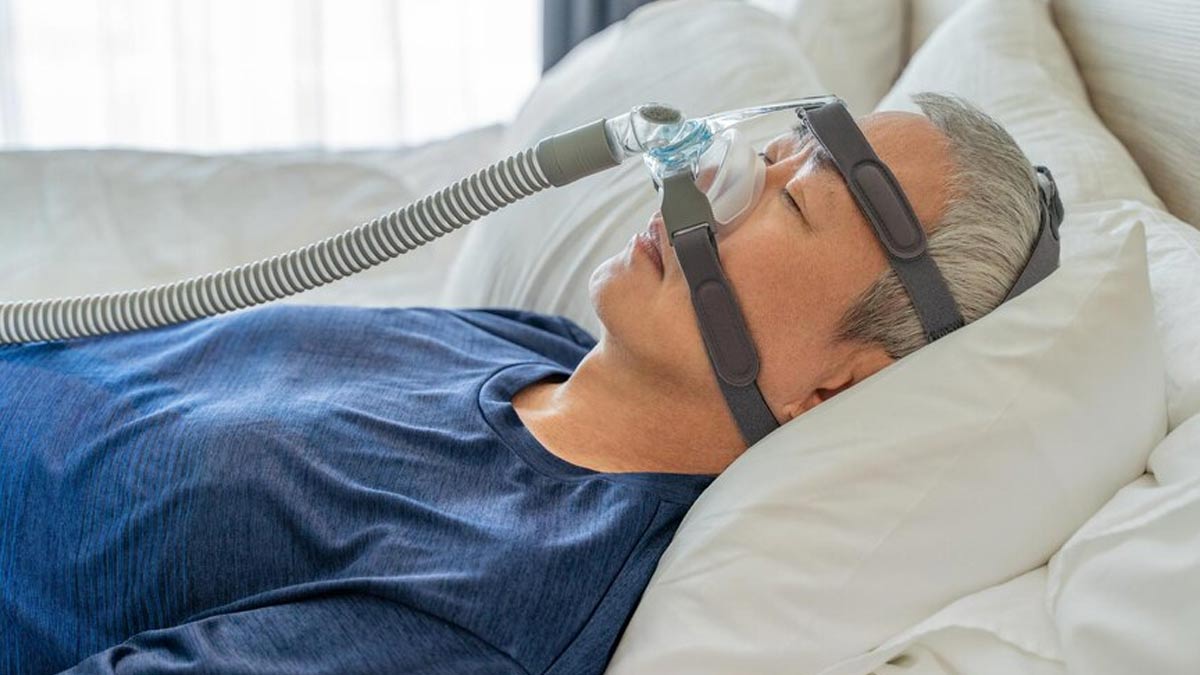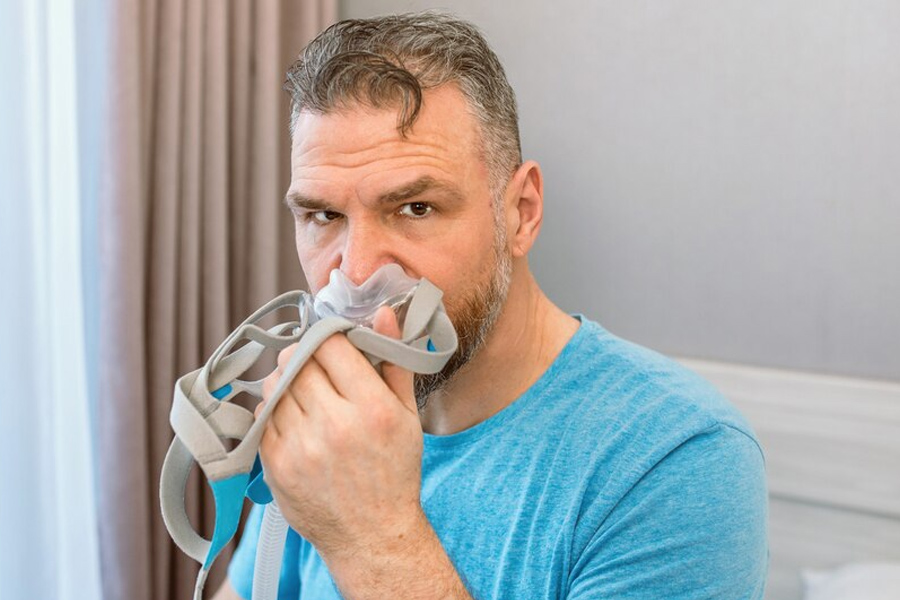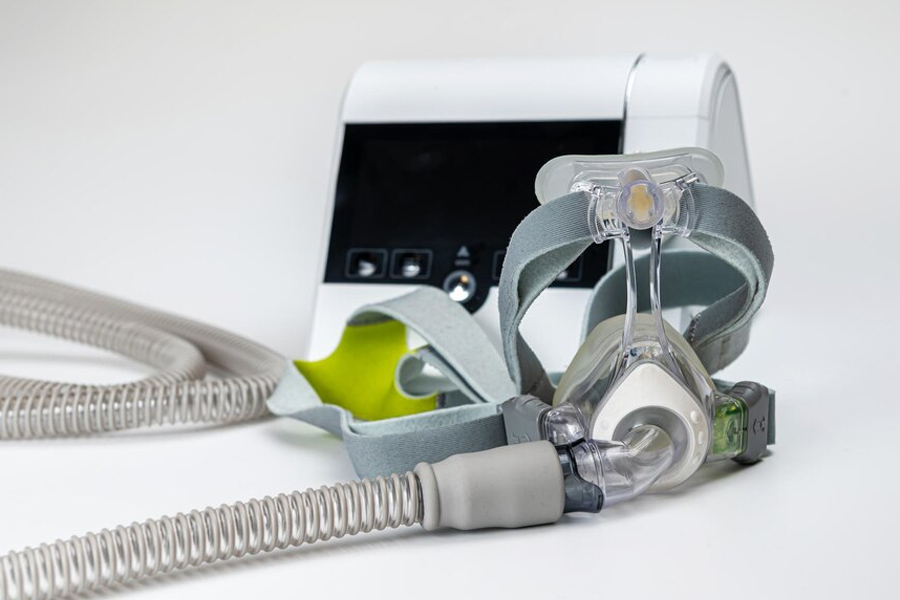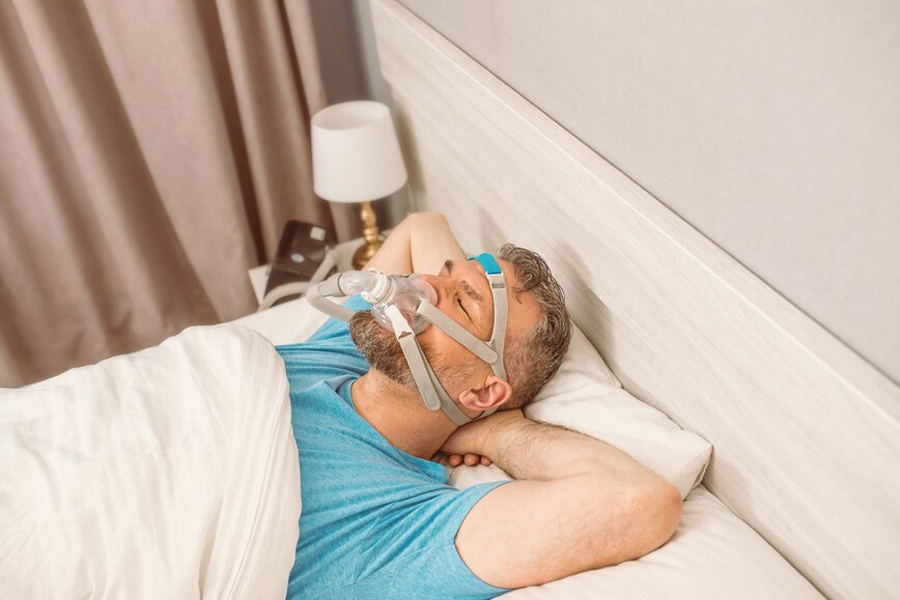
A Continuous Positive Airway Pressure (CPAP) machine is one of the most common and effective sleep apnoea treatments. Sleep apnoea is a common disorder in which a person's breathing stops and restarts several times during the sleep. Other symptoms include loud snoring, excessive daytime sleepiness, sudden awakening during the night, sometimes choking or gasping for air, and morning headaches.
Table of Content:-
The CPAP machine acts as a breathing device that provides constant air pressure throughout the upper airways. It keeps the airways open and makes it easier for people to breathe while they sleep. However, a CPAP machine isn't exclusively used for sleep apnoea patients only and can also be used to treat other health conditions, according to Dr Kushal Chidgupkar, Consultant - Respiratory Medicine, Jaslok Hospital and Research Centre, Mumbai. Continue reading to know more about the device and its alternative uses.
Also Read: Sleep Aponea And ENT: Expert Shares Comprehensive Guide To Diagnosis And Treatment Options
How Does A CPAP Machine Work?

Dr Chidgupkar describes a CPAP machine as a form of non-invasive ventilation used to maintain a constant flow of air to a patient’s airways.
He says that by delivering air at a set pressure, CPAP helps keep the airways open, making it easier for patients to breathe, especially during sleep.
According to the doctor, the airflow can be delivered through various interfaces, such as a face mask, oronasal mask, nasal mask, or nasal pillows, depending on the patient’s preference or medical condition. For patients who are intubated or have a tracheostomy, CPAP can also be applied through these airways.
The continuous pressure from the machine prevents airway collapse, which is especially beneficial for those with conditions like Obstructive Sleep Apnoea (OSA), where airway blockage can interrupt breathing during sleep, the doctor highlights.
It is also interesting to note that CPAP machines come in different types, including conventional hospital ventilators and smaller portable machines that can be used at home. Some CPAP devices have an autoset feature, which allows them to automatically adjust the air pressure within a preset range based on the patient's breathing needs.
Conditions That Can Benefit From A CPAP Machine Other Than Sleep Apnoea

Other than sleep apnoea, CPAP machines can also be used in patients with type 1 respiratory failure, Congestive Heart Failure (CHF), pneumonia, patients with neuromuscular disorders, patients with chronic neurological diseases, and chest wall deformities.
In fact, a 2000 study published in the journal Circulation suggests that CPAP can improve cardiac function and reduce the risk of death or heart transplant in patients with CHF who also have a specific sleep disorder called Cheyne-Stokes respiration.
Researchers randomly assigned patients to receive CPAP or a placebo and found that CPAP was most effective in those with both heart failure and this sleep disorder.
While CPAP did not help those without this sleep disorder, it was shown to improve heart function and reduce the risk of serious outcomes in patients who used it regularly.
Also Read: Why Early Detection Of Heart Failure Remains Challenging: Expert Answers
How Effective Are CPAP Machines For Lung Health?

Dr Chidgupkar says that regular use of CPAP machines can significantly reduce breath work in patients with Type 1 respiratory failure.
Type 1 respiratory failure, also known as hypoxemic respiratory failure or oxygen failure, is a condition where the body doesn't get enough oxygen.
By enhancing oxygenation in the lungs, CPAP helps protect the lungs from further damage while ensuring adequate oxygen delivery to vital organs, such as the brain, heart, and kidneys, which rely on arterial blood flow to function properly, the doctor explains, adding that the device increases end-expiratory lung volume, leading to a larger oxygen reserve in the body.
Additionally, in cases of cardiac failure, CPAP reduces cardiac afterload, boosting cardiac output and preventing the accumulation of fluid in the lungs, thereby improving overall oxygenation.
However, the doctor notes that CPAP must be used with caution and under proper monitoring, as improper use can be harmful.
He says that excessive pressure from CPAP may cause barotrauma, potentially leading to lung rupture and pneumothorax (lung collapse).
Also watch this video
How we keep this article up to date:
We work with experts and keep a close eye on the latest in health and wellness. Whenever there is a new research or helpful information, we update our articles with accurate and useful advice.
Current Version